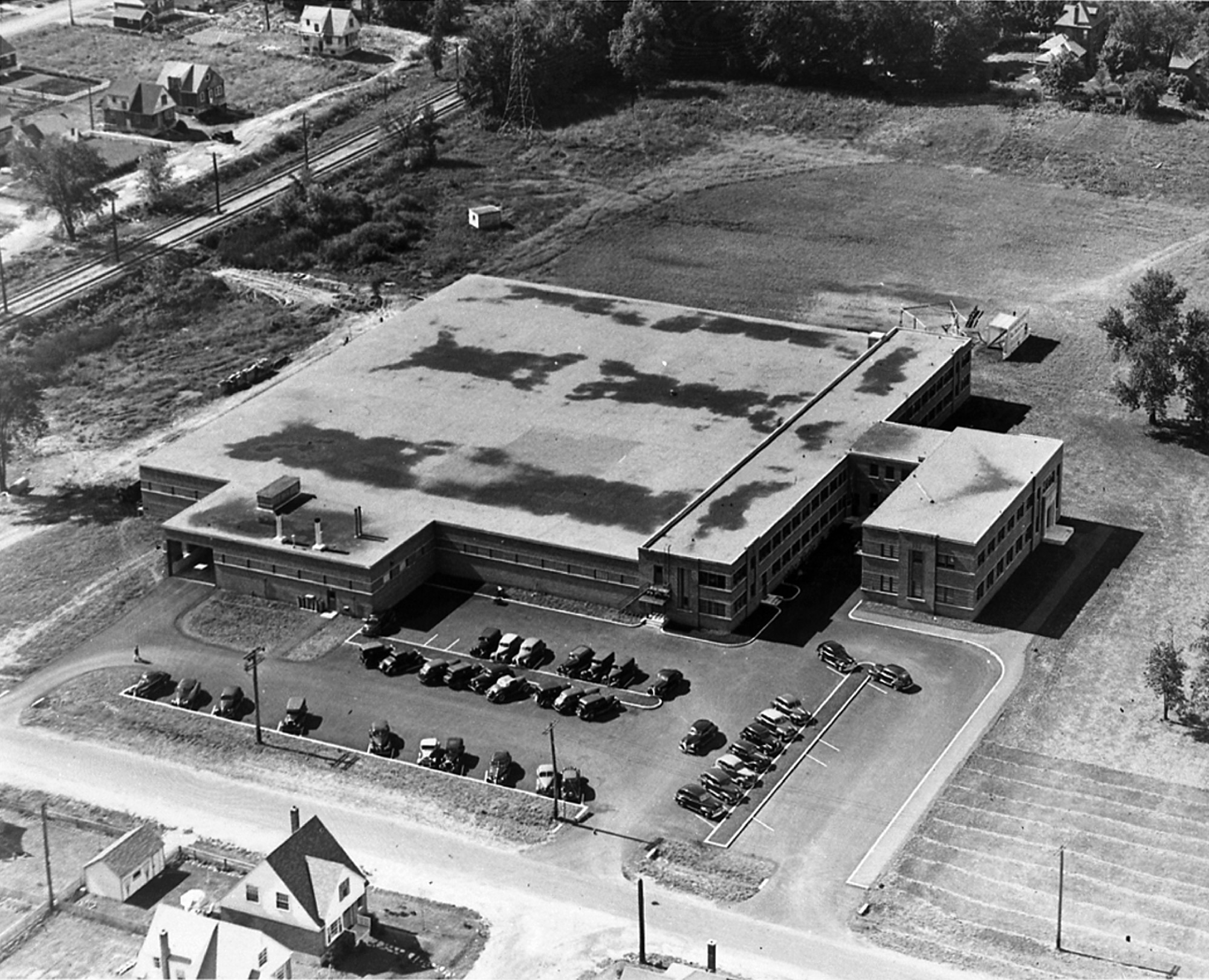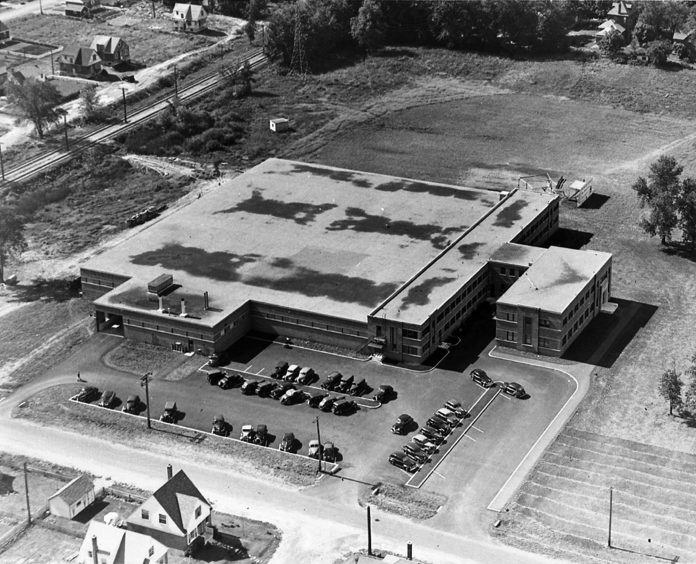The Superstore at 190 Richmond Rd. is a present-day hub for the local community, one that has a varied and interesting past dating back to the 1820s with the arrival of Peter Aylen.
Aylen was a champion of the Irish labourers of Bytown, nicknamed the “King of the Shiners,” a group of active participants in the rioting early days of Ottawa.
Aylen, one of the pioneers of Kitchissippi, purchased the vacant property in 1821 from the Honeywell family and opened a farm in a long strip of land between what is now Hilson and Tweedsmuir. He also built the unique house (the Aylen-Heney House) which still stands today at 150 Richmond Rd., to house the workers of his farm.
Aylen sold in 1837 and the land changed hands until John “Buffalo” Heney purchased it in 1854. Heney was prospering in Bytown as a leather merchant, and had decided to take up a country residence, complete with farm. He stayed until 1887 when he returned to Ottawa. The farm property south of Richmond Road was rented to gardeners, and after his passing, the property was left to son Fred (who served as Reeve and also President of the Board of Trade for Nepean Township). In 1899, Fred replaced the Heney family home with a large 18 room mansion on the present site of the Canadian Bank Note Company.
The old Heney farm sat more or less unused through the early part of the century, despite tremendous neighbourhood growth along both borders. Heney had been slow to sell. However, on May 1, 1941, he sold a 10-acre parcel of land adjoining Kirkwood (which was formerly known as Heney Street until 1941) to the Rolla L. Crain printing company for $8,000.
During WWII, with materials (and manpower) at a premium, Crain made the property available to the public as a “Victory Garden,” to help alleviate the pressure being put on the local food supply. Victory gardens not only helped feed Canadians during difficult times, but served as morale boosters. Crain’s garden was one of several which existed on private properties in Ottawa during this time. Following the war, Crain gave Nepean Township permission to operate a skating rink, bandstand and dance platform on the site.
A building permit for $350,000 was taken out in early 1946. The sod was turned on January 8, and Rolla himself laid the first brick using the same trowel he’d used as a laborer in the 1890s. Engraved on his trowel were the initials W.H.S., which Crain would claim stood for “work hard or starve.” Business operations moved in late in 1946, and the official opening took place on October 27, 1947.

Crain was one of the pioneer printers in Canada, first working from his home in the 1880s, later moving to Winchester and then to Ottawa in 1888. His company was a success, culminating in the construction of this large new facility on Richmond Road. Sadly, Rolla Sr. passed away mere months before the official opening.
The plant was over 150,000 square feet, with 500 local employees dedicated to the firm’s business in the design and production of business forms. At its peak, the company employed 1,150 people at 53 offices across Canada, served 22,000 customers, and totalled nearly $100 million annually in sales.
Due to changes in the business, particularly advances in technology, sales slowed until the doors were finally closed on March 26, 1999. Demolition began in July 2001 (and a large number of maple and spruce trees were also cut down). After a nearly four-year battle with numerous community meetings, plan revisions, and an OMB hearing, construction of the Real Canadian Superstore began in October of 2002, beginning a new chapter in the history of this 10-acre parcel of land.
